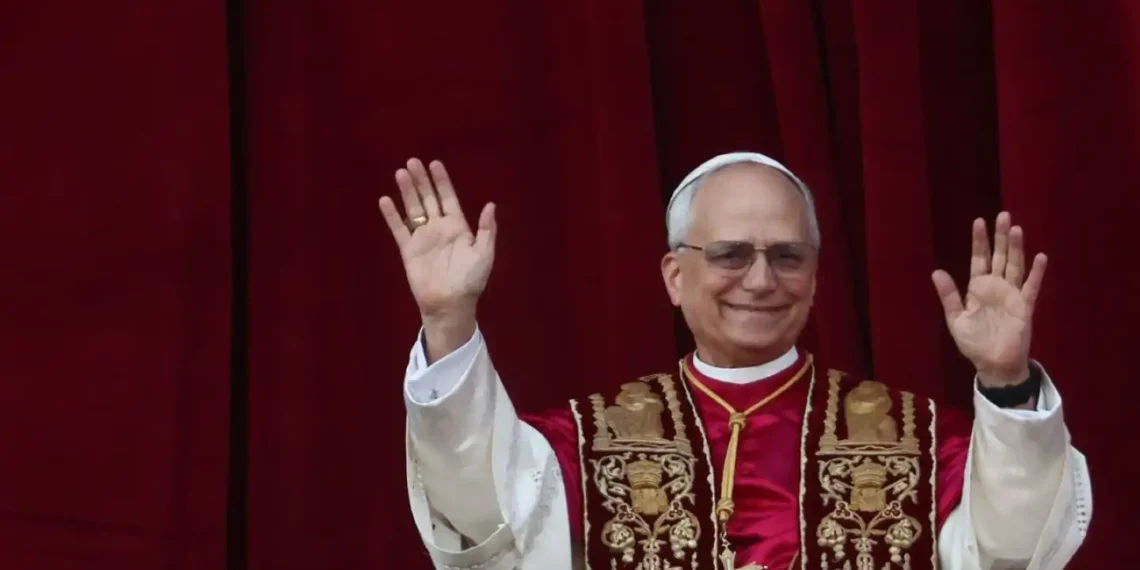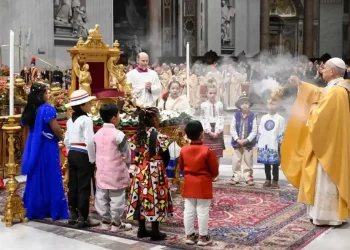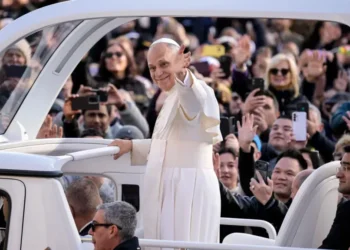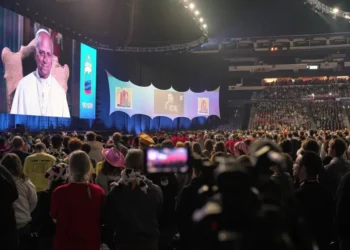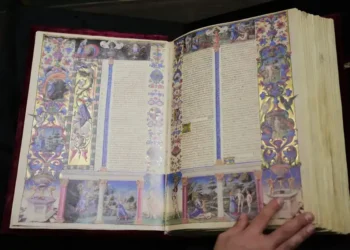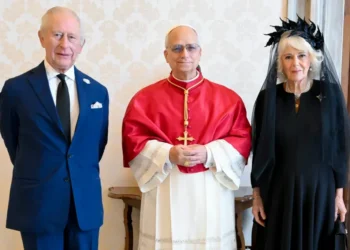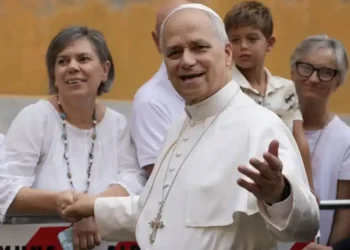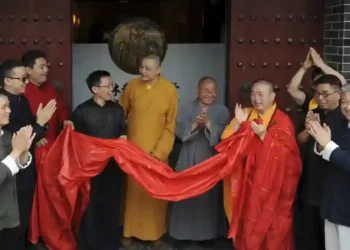Pope Leo XIV: First American Pontiff Ushers in a New Chapter for the Catholic Church
In a historic and symbolic moment for the Catholic Church, Cardinal Robert Francis Prevost of Chicago has been elected Pope Leo XIV, becoming the first American-born pontiff in history. The announcement on May 8, 2025, brought white smoke billowing from the Sistine Chapel chimney, signaling to the world that the conclave had reached a decision.
The moment was met with thunderous applause from tens of thousands gathered in St. Peter’s Square. But the significance of this election reaches far beyond the Vatican walls. It marks a profound turning point for the Church’s global identity and direction.
A Milestone for the Catholic Church
Pope Leo XIV’s election is groundbreaking in more ways than one. He is:
- The first pope from the United States
- The first member of the Augustinian order to assume the papacy
- A bridge between North and South America, holding dual U.S.-Peruvian citizenship
This election reaffirms the Church’s evolving identity—from a Europe-centric institution to a truly global faith community. It also reflects a growing acknowledgment of the Catholic Church’s increasing influence across the Americas, particularly in the southern hemisphere.
Who Is Pope Leo XIV?
Born in Chicago in 1955, Robert Prevost entered religious life early, joining the Order of St. Augustine. His spiritual journey led him to Peru, where he served as a missionary and eventually as bishop of Chiclayo.
Pope Leo XIV later returned to the Vatican, where he was appointed head of the Congregation for Bishops, a powerful office responsible for overseeing the appointment of bishops worldwide. His international experience, pastoral sensitivity, and administrative competence earned him widespread respect within Church leadership.
Known for his humble demeanor, deep spirituality, and strong organizational skills, Pope Leo XIV brings decades of cross-cultural and pastoral experience to the papacy.
Why the Name ‘Leo XIV’?
In choosing the name Leo XIV, the new pope appears to be aligning himself with the reform-minded legacy of Pope Leo XIII, who led the Church from 1878 to 1903 and was widely admired for his progressive encyclical Rerum Novarum, which addressed workers’ rights and the Church’s role in social justice.
That choice of name sends a clear signal: Pope Leo XIV sees his mission as continuing a legacy of compassionate reform, social engagement, and doctrinal openness—in the spirit of Pope Francis, but with a distinct focus on labor, inclusion, and pastoral care.
A Papacy Shaped by Global Challenges
Pope Leo XIV steps into the role at a time when the Catholic Church faces immense internal and external challenges:
- Secularism and declining church attendance in Western nations
- Clergy abuse scandals and a need for greater transparency
- Climate change, migration, inequality, and global conflict
- A growing cultural divide within the Church over doctrine and tradition
In his first address as pope, delivered from the balcony of St. Peter’s Basilica, Leo XIV struck a hopeful, unifying tone.
“Let us walk together—not as strangers, but as brothers and sisters in faith, in hope, and in shared humanity.”
He called for healing and unity, emphasizing compassion over confrontation, and reinforcing the Church’s commitment to the marginalized and forgotten.
Bridging Continents, Bridging Divides
Observers have noted that Pope Leo XIV’s unique background—having lived and served extensively in Latin America and the United States—could help him bridge divides not just across nations, but within the Church itself.
His global experience positions him well to address the widening gap between more conservative and more progressive factions of the Church. Many believe he could serve as a moderate unifier, capable of dialogue with both sides.
His Latin American ties are especially important given the region’s massive Catholic population and the Church’s ongoing efforts to combat poverty and strengthen social justice missions there.
A Global Reaction of Hope and Caution
Reactions to the election have poured in from leaders around the world.
- U.S. President and Peruvian officials offered congratulations and prayers.
- Church leaders in Europe and Africa welcomed his international outlook and pastoral record.
- Reformist Catholics voiced cautious optimism about his potential to advance Pope Francis’ initiatives, including more lay involvement, financial reform, and gender inclusion in ministry.
Still, traditionalists remain wary of how far reforms might go. And questions about Church governance, particularly transparency and accountability, will likely dominate the early years of his papacy.
What Comes Next?
The early days of any papacy are filled with symbolism—and speculation. Pope Leo XIV’s first moves, appointments, and travel plans will offer clues to his leadership priorities.
Some key questions include:
- Will he continue Pope Francis’ push for synodality—a more decentralized, listening-oriented Church?
- Will he address long-standing issues around celibacy, women’s roles, and LGBTQ+ inclusion?
- How will he engage with world leaders amid growing geopolitical tensions?
One thing is certain: Pope Leo XIV has inherited a Church both deeply rooted and deeply divided, full of tradition yet facing a future that demands openness and courage.
A Papacy to Watch
In many ways, Pope Leo XIV represents the Church’s changing face—geographically, culturally, and spiritually. As the first American pope, his election is both symbolic and substantial. It tells Catholics everywhere that leadership can rise from any corner of the globe.
As Pope Leo XIV begins his journey, the world will be watching—not just for what he says, but for how he leads.
“In this moment of change, let us be not afraid,” he said. “For faith is not fear, and love is not division. Together, we will go forward.”
A Message of Unity
In his first address from the balcony of St. Peter’s Basilica, Pope Leo XIV emphasized themes of peace, dialogue, and inclusivity. His words resonated with the diverse crowd gathered in St. Peter’s Square, signaling a papacy aimed at bridging divides within the Church and the broader global community.
Looking Ahead
Pope Leo XIV’s election has been met with widespread acclaim, with leaders worldwide extending their congratulations. As he begins his papacy, many look forward to how his leadership will shape the future of the Catholic Church, particularly in addressing modern challenges and fostering global unity.
This article was rewritten by JournosNews.com based on verified reporting from trusted sources. The content has been independently reviewed, fact-checked, and edited for accuracy, neutrality, tone, and global readability in accordance with Google News and AdSense standards.
All opinions, quotes, or statements from contributors, experts, or sourced organizations do not necessarily reflect the views of JournosNews.com. JournosNews.com maintains full editorial independence from any external funders, sponsors, or organizations.
Stay informed with JournosNews.com — your trusted source for verified global reporting and in-depth analysis. Follow us on Google News, BlueSky, and X for real-time updates.
